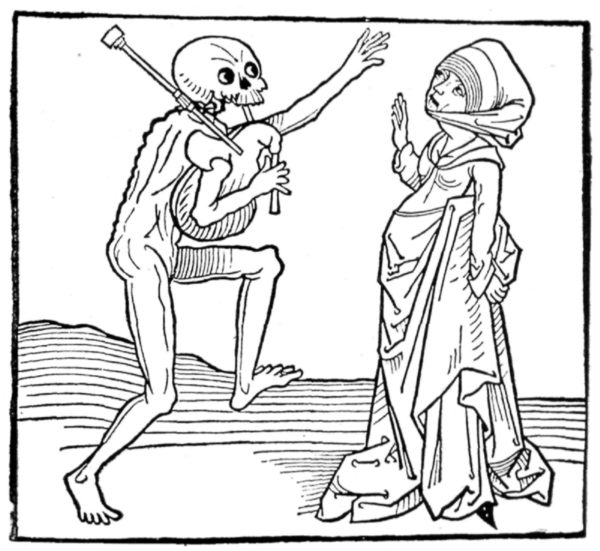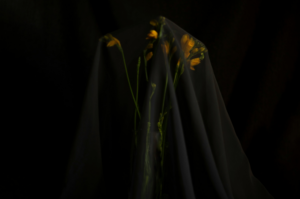
“He’d watch the birds peck at their feathers and take flight, and the performance of sunlight on the trees outside, how it glided from east to west.”
Muyiwa was the kind of man who could have all the kinds of women he wanted. He carried about him an amiable flux and charm, and over time, accustomed to being easily loved, he had acquired a very casual, frivolous sense of affection towards women. When he began to have an affair outside his marriage, the one he’d deliberately gotten into with a nurse, he had intended it to be brief, fleeting, like other ones he’d had in the past. But Bimpe, his wife, who by then had had enough of his serial cheating, had found out about the nurse and decided she was going to finally leave him.
One evening, he came home very late, tipsy; he kicked off his shoes, threw himself on the couch and soon began to snore. He reeked of beer and a hundred sweaty, unshaven armpits. Bimpe gathered the shoes and put them away. It was 10:30 P.M. She went back to bed.
A few hours later, he awakened with a groan, got on his feet and felt like his bladder was going to burst. He dragged himself to the toilet, stood impatiently over the toilet seat for a while, but the piss won’t make its way out. Long seconds passed, and then out it rushed, in two split streams. He groaned in relief.
Bimpe heard his noise and sat up. Muyiwa was now by the door. “I’m hungry. Do I still have food?”
“Let’s hope it’s still warm.”
“It better be.”
Bimpe got up. Muyiwa slapped her buttocks. “Get your hands off me, you pig,” she said.
“What did you call me?”
Bimpe walked away, her ample buttocks wagging behind her. The sight excited Muyiwa.
At the dining table, Muyiwa washed his hands and touched the food, a tidy mound of eba in one bowl and vegetable soup in another. “There’s no way I’m eating this,” he said.
“I thought you said you were hungry.”
“How in hell is it possible to swallow that cold eba with vegetable soup, woman. Vegetable soup!”
“But the vegetable is warm.”
“I don’t care. Make another eba.”
“Wo’, Muyiwa, I need to sleep. I have to wake up early for work.”
“I don’t give a f—.”
Bimpe walked away.
He stared angrily at the food for a moment and, suddenly feeling parched, drank a cup of water and began to judiciously finger the starchy mound. This he did for a while and, when the act seemed to have softened his heart, he slowly began eating.
He joined Bimpe in the room where she lay on her side, facing the window wall. Muyiwa lay beside her and pressed his body gently to hers. And to her ear he whispered, “I ate the eba. I didn’t mean what was I thinking? The thing actually did taste fine.” He paused, read Bimpe’s back for any reaction. Bimpe was still. He put his arm across her body and slid a hand down between her legs and began to fondle. Still Bimpe did not move, but he could hear her breathing rising. He raised his body to look at her face and saw that her eyes were shut. “Aaaah,” he murmured. “You horny thing. You like it.” Encouraged, he carried on fondling, now with a little more gusto.
But Bimpe slapped away his hand, rose to her feet and left the room. “You stink,” she said. “I can’t allow you to touch me smelling the way you do.”
“Okay. Okay. You’ll stay if I take my bath?”
She was already out of the room.
He undressed and was preparing to step in the bathroom when, without volition of his own, he flopped back on the bed and fell immediately asleep.
He woke up in the morning to find that Bimpe was gone. She stated in a note she left behind that it took her a long time to finally leave and she was never coming back; that, for all she cared, he was now free to fuck around with a community of nurse-mistresses. Although Muyiwa did agree he was going to miss how domesticated they had become together, he did not take her leaving very seriously.
But that was ten years ago. Long before he had this stroke and grew accustomed to solitude, being all by himself for the most part of day and looking out the window of the airy parlour of the apartment he shared with Abimbola, the nurse, who went to work at the community central hospital. Every morning, she saw to it that he was cleaned up and helped to sit comfortably on his wheelchair.
Prevented by his condition from any activity in the world, he’d sit at the window and look on, as though he was waiting, waiting for something he did not know but was sure was coming. And every day he sat on the wheelchair, he did so in preservation of himself towards that eventual occurrence.
He’d watch the birds peck at their feathers and take flight, and the performance of sunlight on the trees outside, how it glided from east to west and casted shortened shadows on the ground, then long ones, and then none at all, because the sun was now retreating and darkness was slowly thickening and taking over from day. But always, about the time when Abimbola returned from work, he’d still be able to trace the silhouettes of trees against the night sky by the window where he sat.
Without turning he’d follow her movement in his mind, from the jingling of keys and scratching at the door; her stepping into the apartment, the sound of the door closing, the noticeable stealth in her approaching footsteps, and her final act before the silence was broken: bunch of keys tossed on the centre table behind him.
And the moment she was right there, standing behind him, she’d begin to nag. “Ah! This place stinks! I am tired of all of this oh. I’m tired of spending the whole day at work cleaning and binding people up and then coming home just to start it all over again. Ah, O’ sunmi o.”
Still in her work clothes, she’d wheel him to the bathroom and clean him up and soup him and lay him down to bed and draw the covers up to his chest—all of these carried out in quick passionless motion. And when she turned to leave the room, Muyiwa would screw his eyes up at her and, with great difficulty and effort, say, “Going out tonight again, are you?” And Abimbola would not reply or turn, but her footsteps would be heard hesitating in the hallway, and then resuming slowly. She was really tired, but everything she did, she did not just out of duty, but with a helpless hope, a passive premonition that Muyiwa’s end was ambling near. It was why she endured, so that when the time came, she’d be without fault. Free and guiltless.
**************
About the Author:
 Chris Tilewa is a young Nigerian who writes. He explores various genres of literature and art. A lover of music and everything beautiful.
Chris Tilewa is a young Nigerian who writes. He explores various genres of literature and art. A lover of music and everything beautiful.









ezicat May 22, 2017 05:27
Nicely done.